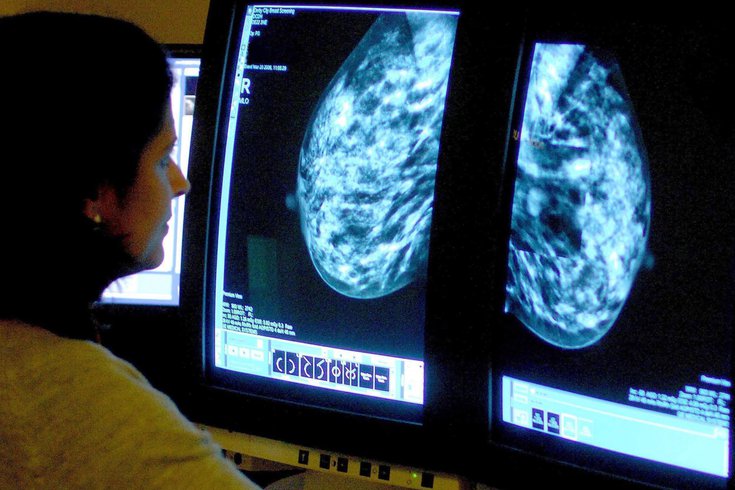
February 10, 2022
 Rui Vieira/PA/Sipa USA
Rui Vieira/PA/Sipa USA
Breast cancer makes up about a third of all cancer diagnoses among Black women, with ER+ being the most common. Black women with this type of breast cancer are 42% more likely to die from it than white women.
Black women have a 31% breast cancer mortality rate – the highest of any U.S. racial or ethnic group.
Additionally, Black women under age 45 are more likely to be diagnosed with breast cancer than their white counterparts, and they're more susceptible to triple negative breast cancer, a more aggressive form associated with a higher likelihood of death.
Most research on these disparities has focused on lifestyle and socioeconomic factors. Yet, a new study suggests a molecular difference in breast cells also may be a significant contributor.
Researchers from Sanford Burnham Prebys in San Diego say their findings can be used to change current diagnostic and treatment strategies to reduce these disparities.
"The way each human being responds to cancer treatment is influenced by so many internal and external factors that are unique to each of us," said researcher Svasti Haricharan, an assistant professor at Sanford Burnham Prebys.
"The scientific community has to confront this and invest time and money into understanding it, because everybody deserves care that is tailored to their molecular makeup as closely as possible."
The researchers found a significant racial difference in the way DNA repair genes are expressed in healthy breast tissue and in tumors that are positive for the estrogen receptor (ER+). These differences affect how quickly cancer cells in the breast grow, their findings show.
Breast cancer makes up about a third of all cancer diagnoses among Black women, with ER+ being the most common. Black women with this type of breast cancer are 42% more likely to die from it than white women.
The little research that has been conducted on racial disparities has come up with conflicting results about whether genetics or other factors are the driving force.
Some studies have found Black women have a higher genetic risk of breast cancer, but others have found the similar rates of genetic mutation linked to a higher breast cancer risk in Black and white women.
Research focusing on lifestyle and socioeconomic factors has found Black women have an increased likelihood of having chronic conditions such as diabetes, heart disease and obesity as well as less likelihood of breastfeeding – all risk factors for breast cancer. Less access to screenings and follow-up care are also contributing factors. So is institutional racism.
Lifestyle and socioeconomic factors are not the full picture, however. Haricharan and her team say it is difficult to complete the picture with the historical lack of data on non-white patients. Black women are severely underrepresented in most research on breast cancer tumors.
Healthy cells naturally repair errors in DNA that can occur during replication or in response to external factors such as stress. Genetic changes, however, often occur in cancer cells, preventing them from repairing DNA. This is what makes these cells resistant to treatment.
While previous studies have investigated how defects in DNA repair can lead to treatment resistance in breast cancer, this is the first to examine how this occurs among different racial groups.
The researchers analyzed healthy and tumor tissue from 185 Black women and compared them to samples from white women. They found that eight genes involved in DNA repair expressed themselves differently in Black women. They also found molecular difference in the cellular signals that control how fast cells can grow.
"This is so important because if the normal tissue is different at the molecular level based on race or ethnicity, then everything we understand about how each of us responds to cancer treatment is going to be different as well," Haricharan said.
Black women may benefit from earlier treatment with cyclin-dependent kinases inhibitors, a drug that helps stop cancer cells from multiplying, she said.
Current clinical guidelines only recommend their use after standard endocrine therapy, but this means some women only receive CDK inhibitors after their disease has progressed to a more advanced stage.
The study found Black women have a significantly higher level of one type of CDK in tumor tissue, suggesting that at least a subset of Black women may benefit from earlier treatment with CDK inhibitors.
"This is something we can act upon immediately, because helping these women is less about finding a new drug and more about changing the timing for treatments we already have available," Haricharan said.
She also emphasized the need for more inclusive biomedical research that better represents the unique biology of each patient.
"We need to build better datasets so we can stop considering what we observe in white people as the default for all biology, which creates a fundamental inequity in biomedical progress."